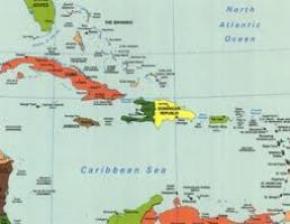News
Warning for Caribbean countries

WASHINGTON, Aug 1, CMC – Caribbean countries have been warned that while increased financial integration has facilitated the flow of funds and allowed regional countries to overcome scale constraints, the increased interconnectedness has also built systemic risks and increased the likelihood of contagion.
An International Monetary Fund (IMF) Working Paper examining the “Financial Interconnectedness and Financial Sector Reforms in the Caribbean” notes that financial sector linkages have increased continuously in the Caribbean with cross border capital flows and financial conglomerates dominating the financial system.
The paper said this has occurred largely through foreign banks’ dominant presence, mainly by Canadian banks, and foreign participation in insurance markets and pension funds, securities trading abroad and direct borrowing of domestic firms in international markets.
However, it notes that most of these developments have been without any formal agreements, with the exception of the Eastern Caribbean Currency Union (ECCU), where there is a common central bank and common stock and government securities markets.
Barbados, Jamaica, Organization of Eastern Caribbean States (OECS) and Trinidad and Tobago, also have an agreement to cross list securities on their stock markets.
“While increased financial integration has facilitated the flow of funds and financial intermediation, and allowed the Caribbean countries to overcome scale constraints, the increased interconnectedness has also built systemic risks and increased the likelihood of contagion,” said the authors of the paper, Sumiko Ogawa, Joonkyu Park, Diva Singh, and Nita T.
They said this was evident most recently when the collapse of the Trinidad-based conglomerate, CL Financial Group sent repercussions throughout the Caribbean region.











